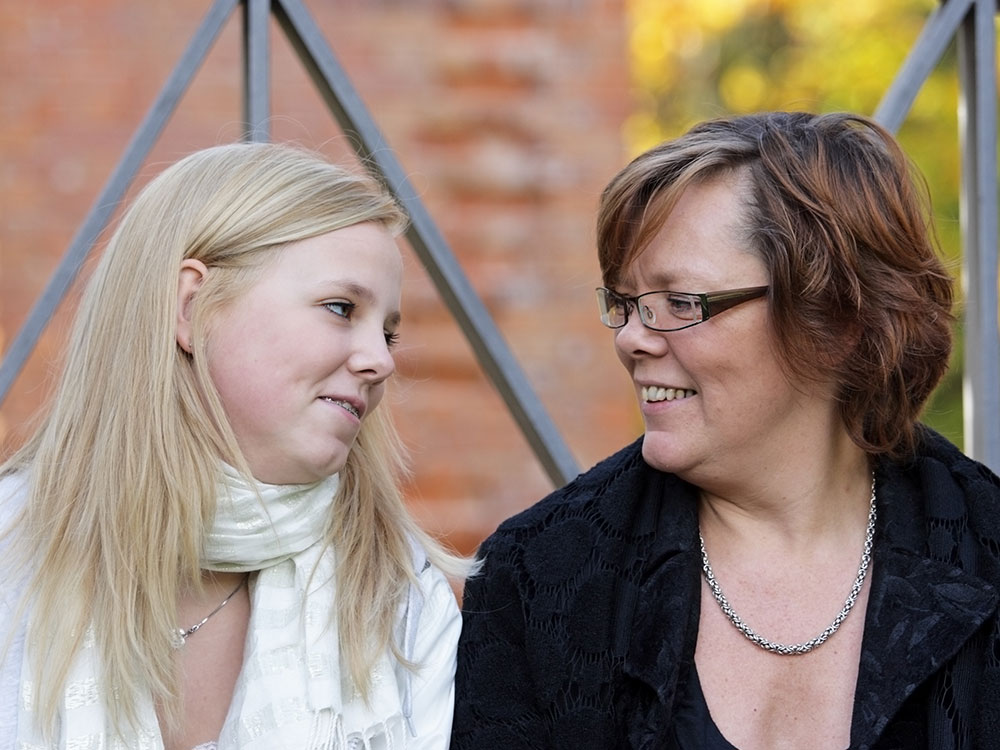Parental education can have a significant effect on children’s teen pregnancy. Studies have shown that teens with parents who have a college degree are less likely to become pregnant than those whose parents did not attend college. Additionally, teens whose parents communicate with them about sex and relationships are also less likely to become pregnant.
Therefore, parental education and communication are important factors in preventing teen pregnancy.
The effect of parental education on children’s teen pregnancy is an important issue that deserves attention. Unfortunately, there is no easy answer when it comes to this topic. Each situation is unique and must be considered on a case-by-case basis.
However, there are some general trends that can be observed.
Generally speaking, the higher the level of education attained by the parents, the less likely their children are to become pregnant during their teenage years. This is likely due to a variety of factors, including increased knowledge about contraception and sex in general, greater financial stability, and more supportive home environments.
Additionally, parents who have completed college are often better equipped to provide guidance and advice to their children regarding sensitive topics like sexuality.
Of course, there are always exceptions to the rule. Some teens from well-educated families still end up getting pregnant despite their parent’s best efforts.
Ultimately, each family must make their own decisions about sex education and communication within the home in order to reduce the risk of teen pregnancy as much as possible.
Rethinking Teenage Pregnancy Prevention | Juliana Marquez Salej | TEDxColegioAngloColombiano
What are the 5 Effects of Teenage Pregnancy?
There are a lot of effects that teenage pregnancy can have on both the mother and the child. Some of these effects can be positive, but many of them are negative. Here are five of the most common effects of teenage pregnancy:
1. Increased risk of health problems: Teenage pregnancies are associated with an increased risk of a number of health problems, both for the mother and the child. These include things like pre-term labor, low birth weight, and neonatal death.
2. Emotional stress: Pregnancy is always a stressful time, but it can be especially difficult for teenagers who may not feel ready to become parents.
This stress can lead to anxiety and depression.
3. Relationship problems: Teenage pregnancy often puts a strain on relationships, both romantic and familial. The parents may not approve of the pregnancy, or the father may not be involved in the child’s life.
This can all lead to conflict and tension.
4. Financial difficulties: Raising a child is expensive, and teenage mothers often have limited resources. This can result in poverty and poor educational outcomes for the child.
5. Social stigma: Unfortunately, there is still a lot of stigma surrounding teenage pregnancy.
What are 4 Ways to Prevent Teenage Pregnancy?
There are many ways to prevent teenage pregnancy, but here are four of the most effective:
1. Improve access to and education about contraception. This includes making sure that teenagers have access to birth control methods that work for them, and teaching them how to use those methods correctly and consistently.
2. Encourage teens to delay sexual activity. The later teens start having sex, the less likely they are to become pregnant or get someone pregnant.
3. Promote healthy relationships and communication between teens and their partners.
Open communication can help ensure that both partners are on the same page when it comes to sex, and can help reduce the risk of unplanned pregnancies.
4. Provide comprehensive sex education in schools. Sex ed should not just be about abstinence; it should also cover topics like consent, safer sex practices, and how to handle a pregnancy if it does occur.

Credit: raisingchildren.net.au
How Does Teenage Pregnancy Affect the Baby Emotionally
The teenage years are a time of great transition and upheaval. The emotions of teenagers can be very intense, and they may swing from one extreme to another without warning. This can make it difficult for them to cope with the demands and pressures of everyday life, let alone the added responsibility of parenthood.
It is well known that pregnancy and childbirth can be emotionally challenging for any woman, regardless of her age. But when a teenager becomes pregnant, the challenges are often magnified. She may be dealing with issues such as inexperience, immaturity, financial insecurity, social isolation, and emotional instability.
All of these factors can have a negative impact on her ability to bond with her baby and provide the love and care that he or she needs.
In addition, teenage mothers often face unique stressors that can further complicate their emotional state. These include judgment from family members and society at large, fears about the future, guilt over getting pregnant in the first place, anxiety about being a good mother, and worry about how having a baby will affect their schooling or career plans.
All of these stressors can take a toll on the mental health of teenage mothers-and by extension, on their babies as well. Studies have shown that teenage mothers are more likely than older mothers to experience postpartum depression (PPD). PPD is a serious condition that can interfere with bonding and attachment between mother and child; it has also been linked to poorer cognitive development in infants.
In severe cases, PPD can lead to thoughts of harming oneself or one’s child-which is why it’s so important for teenage mothers to get help if they’re feeling overwhelmed or hopeless.
If you’re a teenager who’s pregnant or parenting-or if you know someone who is-it’s important to seek out support from friends, family members, healthcare providers, or other trusted adults.
Negative Effects of Teenage Pregnancy on the Child
It’s no secret that teenage pregnancy comes with a unique set of challenges. But what about the challenges faced by the children of teenage parents? Unfortunately, these children often suffer from negative effects as a result of their parents’ inexperience and immaturity.
Some of the most common negative effects of teenage pregnancy on the child include:
1. Poor educational outcomes. Studies have shown that children of teenage parents are more likely to drop out of high school and have lower levels of educational attainment overall.
This is likely due to both financial difficulties and parental involvement in their child’s education.
2. Increased risk of abuse and neglect. Unfortunately, children of teenage parents are at an increased risk of being neglected or abused.
This is often due to the fact that teenage parents are less capable of providing emotionally and physically for their child.
3. Behavioral problems. Children of teenage parents are also more likely to exhibit behavioral problems, such as aggression and delinquency.
This is likely due to a combination of factors, including poor supervision, lack of parental involvement, and exposure to violence within the home.
4. Poor health outcomes. Finally, children born to teenage mothers are more likely to suffer from poor health outcomes overall.
Effects of Teenage Pregnancy on Education
It is no secret that teenage pregnancy can have a profound effect on a young woman’s life. In addition to the obvious physical and emotional challenges, teenage pregnancy can also have significant implications for a young woman’s education.
While some teen mothers are able to successfully navigate the challenges of parenthood and continuing their education, others find themselves struggling to keep up with schoolwork or forced to drop out altogether.
According to the National Campaign to Prevent Teen and Unplanned Pregnancy, approximately one in four teen girls who become pregnant will drop out of high school.
There are many reasons why teenage pregnancy can interfere with educational attainment. For many teen mothers, simply managing the logistics of caring for a baby while attending school can be overwhelming.
Many teen parents also face economic challenges that make it difficult to afford childcare or continue their education beyond high school. Additionally, stigma and discrimination against teen mothers can create barriers to success in school and in life more broadly.
Despite the challenges, there are many programs and organizations dedicated to supporting teenage parents as they pursue their education goals.
These resources can provide vital support in terms of financial assistance, child care, counseling, and academic advising.
Conclusion
It is no secret that parental education plays a role in their children’s lives. But what effect does it have on teenage pregnancy? A new study has found that parental education may actually be a contributing factor to teen pregnancy.
The study, conducted by the University of North Carolina at Chapel Hill, looked at data from the National Longitudinal Study of Adolescent Health. They found that teens whose parents had less than a high school diploma were more likely to become pregnant than those whose parents had a higher level of education.
There are a number of possible explanations for this finding.
It could be that teens with less educated parents are more likely to grow up in poverty and have less access to contraception and sex education. Or it could be that these teens are simply more likely to rebel against their parents’ wishes and engage in risky behavior.
Whatever the reason, this study provides yet another example of how important it is for parents to be involved in their children’s lives and educate them about making responsible choices when it comes to sex.


